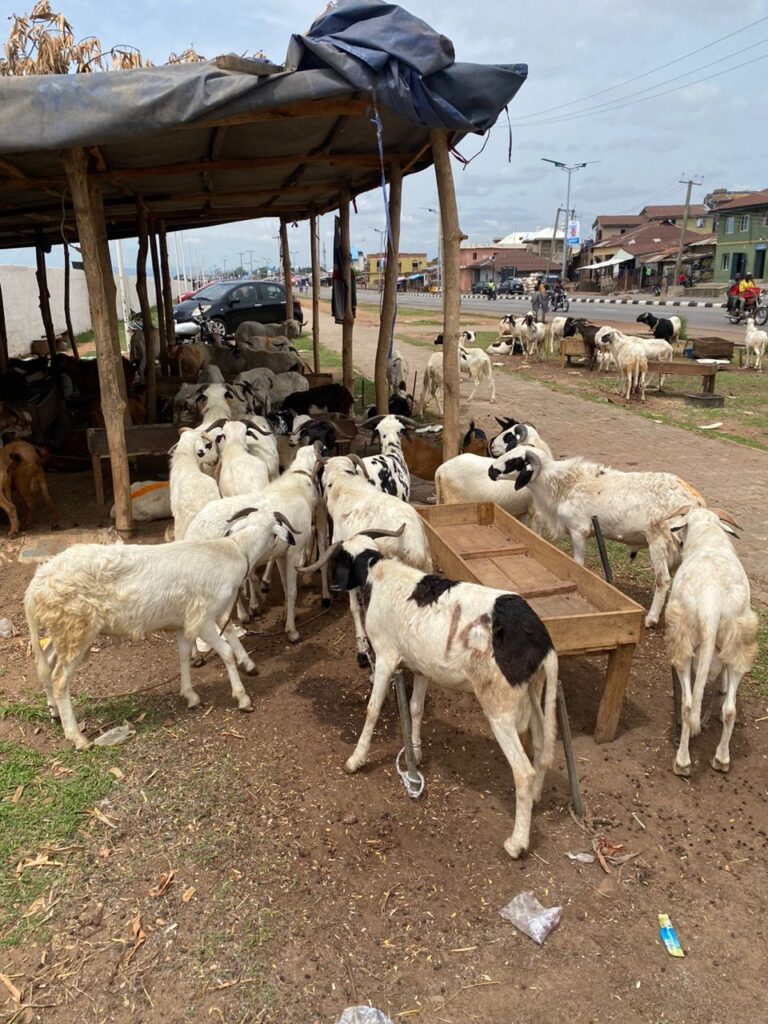From Ahmed Muhammed Danasabe, Lokoja
With a few days to Eid-el-Kabir, many Muslim families across the country are abandoning the traditional slaughtering of rams due to skyrocketing prices and worsening economic realities.
In several parts of Lokoja, Kogi State capital, checks by The Triumph revealed that many households are opting for cheaper alternatives such as goats, chickens, or skipping the sacrifice altogether.
A middle-aged mother of seven who spoke to Triumph at her residence in the Adankolo area said her family would neither buy a ram nor consider any substitutes this year.
“We’re not slaughtering a ram, and we’re not looking for alternatives either. Things are tough. But in all, we thank God. Hopefully, next Sallah will be better,” she said.
She added that her family couldn’t even afford chicken, turkey or fish for the celebration.
“It has been like this for the past five years. We just manage. Alhamdulillah.”
A commercial driver, Dauda Shehu, told our correspondent that he had settled for a goat this year.
“Last year, I bought a medium-sized ram for N120,000. That same size is now almost N250,000. I can’t afford that. I’ve explained to my children that we’re going for a goat this time. God understands our intention,” he said.
At the Felele market, a provision seller, Zainab Yusuf, said her dream of buying a ram this year had collapsed due to the high cost of living.
“Usually, I save from Ramadan to buy a small ram. But this year, shop rent has gone up, prices of goods have doubled, and sales are poor,” she said.
“I went to the Ukumi Livestock Market yesterday—what I saw shocked me. A ram I could buy last year for N100,000 now goes for N220,000. I just walked away.”
According to her, the focus this year will be on family, prayer, and food.
“I’ll buy turkey or two big chickens, cook well, and invite family over. Sallah isn’t only about rams; it’s about sacrifice, prayers, and gratitude.”
Traders also lament poor patronage despite the rising costs. At the Ganaja livestock market, the Chairman, Alhaji B. B. Umar, told Triumph that ram prices have increased by at least 25 per cent compared to last year.
“This year, rams are sold for between N200,000 and N450,000 depending on size and breed,” he said.
Umar attributed the price hike to insecurity in the North, higher feed costs, and expensive transportation.
“Transporting rams from Sokoto to Lokoja now costs over N1.5 million. Feed that used to cost N3,000 now goes for between N8,000 and N9,000. Fuel price and bad roads are also affecting us.”
He appealed to the Federal Government to support livestock dealers with soft loans, especially during festive periods.
At Lokongoma, roadside ram sellers have begun to spring up ahead of the Sallah rush. However, traders say patronage remains low for now.
A secondary school teacher, Muhammad Awwal, told Triumph he had already informed his family that a ram was off the table this year.
“I won’t stress myself. A medium-sized ram is over N200,000, and cows cost over N1 million. Sacrifice is not compulsory in Islam. I’ll focus on buying food—we can’t do without that,” he said.
For a civil servant, Yahaya Usman, owning a ram this Sallah is only possible if he receives it as charity.
“Rams are too expensive. If someone gives me one, fine. If not, I’ll join others in contributing for a cow. We call it Watanda here,” he said.
Goats, although permissible for sacrifice, are often seen as less prestigious. But for many this year, they are the only feasible option.
As the festive season draws closer, families and traders alike hope that the market will stabilize, or at least become more forgiving to the average Nigerian.


